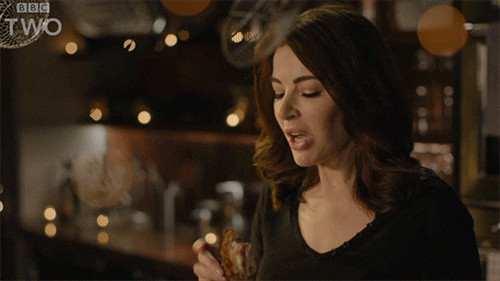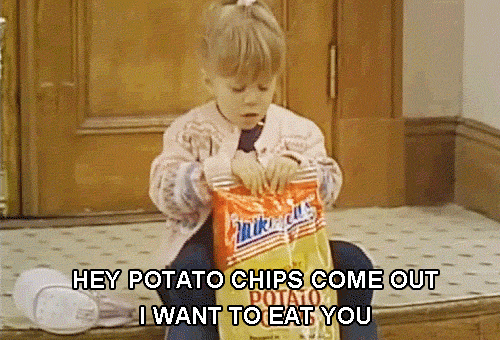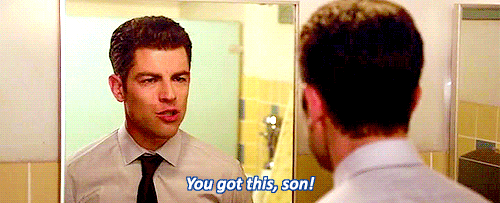What is regular eating and how does it impact recovery?
Dieting has become such a big part of our culture. Even children are prodding their tummy’s and telling us ‘I’m fat.’ It’s impossible to get away from and as someone who’s in recovery from Anorexia Nervosa, I find it difficult to engage with people once they start diet talk. I know I can’t get away from it indefinitely. Dieting has become so tightly intertwined with our society that it would be nearly impossible without shutting myself indoors and staying away from all forms of media.
Every day I come across people watching their weight and displaying signs of unhealthy eating habits. I can count on one hand the number of people I’ve met who have the balance just right.
What is “normal” eating?
Before looking into adopting regular eating habits, I wanted to take a brief look into what is considered to be ‘normal‘. Surely dieting can’t be standard by which all people are held?
Recovery Warriors describe ‘normal eating‘ as the following;
Many people consider it “normal” behavior to anxiously monitor their weight every day, to worry about their amount of exercise, to obsess about whether to eat dessert. But is a lifetime of guilt about food and weight really normal? Is this how we want to live our lives? Is our physical appearance the only way we measure our success in the world?
Mary Anne Cohen, Recovery Warriors.
There are considered to be six aspects to “normal” eating.
- Eat when hungry.
- Only eat what will satisfy.
- Stop eating when full.
- Face feelings directly rather than over or under eating.
- Express emotions directly rather than stuffing down on food.
- Don’t beat yourself up if you overeat, under-eat, or gain a couple of pounds.
But what does ‘regular eating’ mean?
As part of treatment, adapting a regular eating schedule is considered one of the key components for recovery from an eating disorder. It can be very daunting, and with so much conflicting advice can seem nearly impossible. If you’re not working with a treatment team this is made even harder because you lack the guidance from a trained, medical professional.
Once a meal plan is in place, you can begin to gradually make positive changes to other eating habits.
Regular Eating is described as…
- Eat at regular times throughout the day.
- Avoiding long periods of time without food. It’s usually suggested to eat roughly every three hours.
- Routinely eat at the same time every day.
- Eat breakfast, lunch and an evening meal, with three snacks included in between.
My personal meal plan currently means that I eat every three hours, and must ensure that I eat six times a day. This would mean three hearty meals, followed by three snacks spread throughout the day.
It’s difficult, I’m not going to lie about that. I’ve suddenly had to go from skipping every meal to eating six times daily, and my brain is still struggling to process this. The reality is that the majority of people who eat regularly aren’t overweight. They’re also less likely to become overweight because they aren’t binging due to ongoing restriction.
You may be interested in: What recovery will bring to my life.
How to adapt your meal plan.
Make eating a priority.
Mealtimes need to become an important part of your day. In the beginning, this may mean compromising other areas or activities in your life, but after a while, you should be adjusted to your new schedule.
Create an effective meal plan can only begin with your full commitment.

Plan your meals and snacks.
Know when your next meal is and what you’re having. It’s always useful to bring snacks with you if you’re going out anywhere. When in treatment the ‘I was out and didn’t have food’ excuse doesn’t sit well, so it’s always best to carry a cereal bar or piece of fruit with you at all times.
When I first entered treatment I went around my local store and made a list of things I could easily carry with me in my handbag or pocket.
Do you need advice on how to lay out and stick to a meal plan? Check out this post for more information on how to make meal planning fun!

Eat what you want.
I know it sounds daunting if you’re coming from a place with Anorexia Nervosa. The concept that I can eat whatever I want scares me because Anorexia has never let it be that way. But in recovery, it’s paramount that you start off eating what you want, be it a chocolate bar or a banana.
In the initial stages of recovery, it doesn’t much matter what you eat, as long as you eat regularly and a substantial amount. The rest will come later.

DON’T Purge.
This one should be self-explanatory. If you suffer from Bulimia or bulimic tendencies, then the urge to purge will be ever-present. Resist the urge to take part in purging i.e vomiting or laxative use.
This will only counter the effects of a regular eating schedule.

Do not skip meals.
Being busy or forgetting snacks doesn’t cut it.

Stick to eating every three to four hours.
Aim to eat every 3-4 hours. Going long periods without food can lead us to feel several negative side effects such as irritability, light-headed, trouble concentrating and weakness.
If you have trouble remembering when to eat try setting an alarm on your phone to remind you.

Don’t eat between meals and snacks.
This is known as grazing and I’ve been warned against by my therapist. Grazing is counterproductive. It’s unstructured and ultimately confuses your body about when it should and shouldn’t be hungry.
If we stick to eating at set times each day and don’t stray from it, then our bodies naturally adapt to being hungry at those specific times. This would ultimately eliminate the bodies need to ‘graze.‘
However, if you find yourself persistently hungry try and stand against it. Drink some water or distract yourself in another way. If it continues despite this, it could be time to consider leaving smaller gaps between your meals or upping what your intake at mealtimes.

DO NOT give up!
Whether you’re in recovery or you just want to adjust your eating schedule remember; Never give up! Practice makes perfect and over time it will get easier to eat regularly, and you’ll feel so much better for it!

Whether you’re in recovery for an eating disorder or not, almost everyone could do with adopting a regular, scheduled meal plan. I hope this was both informative and useful for you no matter what you’re going through in regards to your diet.
** If you like what I do please consider donating to my Ko-Fi. Your support helps keep this blog alive and helps improve my content in the future.

There have been a lot of new ideas about diet habits and it’s new to me, thanks a lot for introducing it and I can have a fuller picture about my diet. – Knycx Journeying
As a foodie, it’s so difficult to have a “normal eating” habits as there’s so much temptation. Being a sweet tooth too, I often crave for sweet things at odd hours. I hope I can adapt to strict meal plans again soon.
That’s a good tip to set a timer on your phone for when it’s time to eat. If you’re not used to having meals 3 times a day, that’s surely going to be helpful.
I find eating at similar times and actually paying attention to your meal helps a lot. There are so many times I eat an entire meal without even noticing because I’m watching tv!
Great tips! I like to plan things and what I’m going to eat. This way, I don’t have to worry about it anymore.
Fransic – https://www.querianson.com/
These are really informative and exactly what i need at the moment. I always think i overeat because i used to eat a lot when i am stressed which i know is not healthy at all. Just like you have mentioned here, i think planning your meals ahead is a clever approach. I just don’t know yet which diet i should be into but I will definitely start checking my food and try to consume them as moderate as possible
thank you for sharing
Great read. I personally sometimes view food as something bad. I guess it’s just a matter of mindset and seeing food as nourishment and not as something to make us feel bad about ourselves.
I can’t tell you how much I love this. There is such culture of dieting that I think we’ve all forgotten how to just eat normally.
This is a great post. So many people do such weird things with their eating schedules and amounts looking for some kind of magic bullet.
The cow chewing gif made me giggle. We all know if diets worked there wouldn’t be a new ones posted on magazine covers every month. I’m a grazer and eat small snacks all day long. It works for me.
Mindful eating is a very healthy way of eating wherein we really connect tour food and our feelings.
Regular eating is an interesting term. It is better than the word “normal” At any rate, hard core dieting and such leads to unhealthy behaviors. MIndful eating is what I recommend.
Great Tips!! One thing my grandmother also taught me. You do not need to feel full to know you are done eating. Because by the time you feel full you most likely already at too much.
Thank you so much for popping in and reading. I really appreciate it.
These are some really cool tips and love the way you have expressed them with those fun gifs. The idea to eat at regular intervals does make sense and I think I will give it a try.
Thank you for reading and commenting. x
Thank you for reading.
Thank you so much for your lovely comment. Sending you much love and I hope you have a lovely weekend too.
Thank you for reading 😀
Thank you so much for reading and commenting.
That’s the reason I write this blog. Not only am I helping others but also myself by doing the research. Thank you so, so much for your ongoing support. x
Thank you for reading. I’m so glad it’s been helpful for you.
Definitely a good idea to plan ahead.
It’s still paramount to my ongoing recovery!
Thank you for reading 😀
Thank you so much for reading and commenting. x
Thank you so much for reading and commenting.
Thank you so much for reading. x
Thank you so much for reading and commenting.
It’s not easy, especially not in a world where we’re constantly told to eat less. Sending much love and thank you for reading.
Thank you for reading 🙂
I’m sending you much love and success on your journey to overcome disordered eating. It’s not hard but it’s worth it!
Thank you for reading x
Thank you so much for reading pet! x
Thank you for reading 😀
Thank you so much for stopping in and reading. I really appreciate it.
Thank you so much for reading and commenting, Laura! x
Thank you so much for opening up to me in the comments, and for reading this post. I hope it helps and I hope you can manage to get the help you deserve. x
Don’t worry, we’re all guilty of some sort of disordered eating, even if it’s not intentional.
Thank you for commenting.
It certainly does! I’m done with diet culture!
Thank you for reading and commenting.
Thank you for reading 🙂
Thank you so much for reading and commenting. x
It certainly is and it’s something I doing my best to keep up.
Thank you for commenting.
Thank you for stopping in and reading. x
Thank you so much for reading 🙂
Thank you so much for stopping in and reading, love. I really, really appreciate the support.
I believe eating at regular intervals everyday is the key to a great body and mind 🙂
COT | Changeoftomorrow.com
Thank you so much for sharing, this is beyond great ????????
I absolutely love this post. It’s really brave that you’ve spoken so openly about your previous and current feelings towards food! I really struggle with food guilt, but other than that I have a pretty healthy relationship with food but I totally understand how and why some people don’t, especially when stress and mood swings are involved. Well done on turning it around! Have a lovely weekend. x
We have to eat only when we feel hungry….
Thank you for sharing this post ????
It’s really useful ????
JENISH | https://knowafactfromj.blogspot.com
The biggest challenge for me was eating only when I’m hungry. Great tips, thanks.
This is a great resource for anyone that is currently working their way through treatment. I can remember when I was first told that I needed to adopt regular eating… I was SO confused by what they meant. I was totally at a loss when it came to what was ‘normal’ and what wasn’t. I wish I had something like this to assist me at the time.
I’ve long wondered what constitutes ‘regular eating’ – so this really explained it. The tip about grazing was really helpful for me too!
See that’s what I need to do. Plan my meals and snacks!
When I was in recovery, this was paramount to my success!
This was amazing advice! I can imagine eating habits are so important…thank you for the inspiration! ????????????
I agree with you about sticking to the same hours for breakfast, lunch and dinner. I have followed that strickly for years except when I am travelling. However eating every three hours is a bit challenging for me.
I think listening what your body tells you is so important. eat healthy when hungry and stop when full. it sounds so easy but society has insatiable desire for food. slowly we will get there as more information like this are out, thank you
I read this long and interesting blog post. Health and well-being go hand in hand and above all intersect in common gestures which, however, should not be taken for granted … in short, an interesting study.
This is a very informative post! I’ll try to do regular eating!
xoxo
Lovely
http://mynameislovely.com
Enjoyed reading your informative post. I was into regular eating before but now find eating three times a day a better alternative. I feel healthier and do not put on much weight. But many of my friends find regular eating suits them best.
I’m a bit of a grazer, and it’s definitely not a good thing, especially since I left my job to be a carer and work from home, the opportunity to graze 24/7 presented itself. I’d definitely need to find some structure my eating.
I will seriously consider the six aspects to normal eating. I think I don’t follow most of them. I will try from now on.
I am still working on regulating and normalizing my eating. Breaking my binge/purge cycles has been hard but It is something I work on daily
12 hours fasting is our thing. That’s our daily diet routine.
This is an awesome post! I love the advice you share, especially since it gives a hand up to so many people who need some reassurance on their recovery journey. I tend to eat every four hours with roasted nuts as snacks in between. 🙂
Wow!! There’s something I didn’t think about at all. I guess we live in a culture that revolves a lot around food and eating. I believe that it is because we need to eat frequently in order to live. You are right, over eating is where normal eating becomes a problem.
That’s a great post! I do try to follow it all the time: eat at set times without skipping or re-arranging things. as well as eating when hungry and only as much as I need. However it is hard to say no my favorites and not eat more than I actually need. Comfort eating is my problem and I really want to get rid of it and only have regular and normal eating
This is amazing advice! Eating habits is definitely a struggled topic for so many of us! I love how helpful and informative all your posts are! The diet craze has created such an unhealthy environment for our society.
It took me a while to realise and acknowledge that I am an emotional eater. It’s been a long hard journey but I’m getting there. There are so many things in this post that make sense to me and fill me with some hope. I really appreciate you sharing a personal post and in turn helping people like me who struggle to structure their eating habits.xxx
Another informative post from you! I guess I’m guilty of eating within long periods hehe but thanks for this, I now realized what I have been doing wrong.
For so many of us, it’s hard to know what normal eating is. A lot of us have lived our entire life on some sort of a diet and it needs to end!
I wasn’t aware there were 6 aspects to normal eating. I think that I’ve got most covered myself. I only eat when hungry that’s for sure.
Yeah completely do agree with you nowadays dieting is on its peak and every single child is also trying to follow dieting process…well this blog post is truly very informative and useful..glad you shared the real facts with us…
This is such sound advice. Planning meals, and not skipping on any will help to form a healthy habit.
Very informative post. I had no idea what was considered regular eating. This should be taught more. Especially because people put such a big emphasis on eating regularly.
This post has been truly informative for me. My relationship with food has always been up and down for me. Sometimes, I barely eat at all forgetting that my body needs it and sometimes, I try to eat breakfast, lunch and dinner. And sometimes, I just graze. Thank you for spreading awareness on the different habits of eating. – Josie xxx
This is a great post lovely! It was so interesting to read what regular eating really means. The illness I have means I have to eat high calorie foods to keep my weight maintained and to help fight off chest infections, so the more takeaways the better for me! x
Lucy |
Thank you for reading!
Yeah, it’s so vague. I hate when people tell me to just eat normally because it’s different for everyone and you can be perfectly healthy and eat in a different way to someone else. Much like your boyfriend, my partner never eats breakfast but everything else about his diet is normal.
Thank you so much for reading and commenting pet 🙂
Thank you so much for reading pet. Sending my love to you and your friend. x If you need anything let me know.
It’s very hard. I’m trying to learn to honor my hunger but it’s so hard after a lifetime of ignoring it. We’ll get there, though, we got to just keep trying!
Thank you for reading and commenting. Much apprecaited.
Great post! Thank you for sharing! This is very useful!
This is an interesting post. I think you can only use the term “normal” very loosely when it comes to eating because there’s lots of eating patterns that aren’t an eating disorder. E.g my boyfriend never eats breakfast, not because he has a disorder or anything, just cos he’s never hungry in the morning. I’ve had some seriously disordered eating growing up so reading this list of behaviours that are considered “normal” eating here makes me really proud that I actually finally have a pretty decent relationship with food!
This is great! Someone I love very much was just diagnosed with an ED, so I will pass this along. Thanks for the great tips!
Eating has been a big struggle for me as I am a stress eater and a boredom eater. When I’m at work if the day is hard I get food to make me feel better. If I have a day off at home I get food because I’m bored. I’m trying to learn to change these habits but they’re ingrained in me!
Based on your list, I am practising regular eating!! I feel relieved. Haha.
It can be a problem which is caused by or is accompanying an eating disorder, it’s not in itself an eating disorder. IBS is based on bowel health and stimuli that impact that.
hey nyxie i have a question does having IBS is also an eating disorder problem?
I’m finding that I get the same way!
Thank you so much for reading 🙂
I eat every 3-3 1/2 hours. I hate it, but i have to do it in order to recover. I now find my body becoming hungry when the 3 hours rolls around which I suppose is good as my body is learning it’s signals.
I have to eat every 3 hours because it impacts my weight if I don’t. It could be because she is on a strict, recovery meal plan. You never know. And those people should really watch their mouths in case the young girl is. It could send her backward.
Thank you for reading 🙂
love this guide! every single one of them is important. Thanks so much for sharing
I work with someone who eats every 3 hours or so. People laugh and joke with her about it, but she is super trim.
My dietician told me to eat when I was hungry, not be dictated by traditional meal times. I do feel better/ eat more using this rule.
Yes, I also try to eat at regular intervals. Going for long periods without food make me binge. And then I get stomach upset. 🙁
Thank you!
Thank you so much for reading. Nor am I mindful when eating but I’m trying to learn to do so.
Thank you so much for reading and commenting. Body image is such a difficult thing to overcome. I’m new to this journey, although I’ve tried many times before, but now I’m trying to leave behind all my bad habits, and not just the one.
Eating disorders are such an important topic nowadays. I love your post! Right on point!
A great post, I think all of us could learn a lot from this.
I am not mindful or aware of my eating at all x
You’re an amazing testimony! It’s so hard to find “balance” in life with all things. But, the media has placed a HUGE strain on our development trying to tell us what “healthy” should look like. I struggled with my image, and I still do to this day. My husband has to do a lot of reassurance for me. I have to remember that the number on the scale is just a number- it doesn’t mean anything else but that. Great tips and advice! Thank you! 🙂
It has really helped me today actually – I’m still fairly groggy from the dental sedation but eating something every three hours is helping me feel better and a bit more energetic and a little less walking dead. I definitely think my mood is more stable for it today.
I’ll try and keep it going for a couple of weeks and see how my productivity and general feeling of “wellness” goes with it.
Thank you for stopping in and reading 🙂
It’s horrible that kids are being made feel like this. Another generation poisoned by diet culture.
I always have to set alarms to remind me to eat because I just forget. I’m so used to not eating and enjoying the feeling of hunger that I just don’t.
Thank you !
I’m hoping to eventually become a regular eater, but it’ll take a long time before I’ll ever achieve it. Thank you so much for not only reading but sharing your story with me.
Thank you so much. I appreciate you popping in for a read and comment 🙂
I think I can count even less people I know who have ‘normal’ or balanced eating habits than you do! That is such a tough thing to maintain especially with so much social pressure to be ‘skinny’ – whatever that even means. These are great tips – especially never giving up!
I’ve been body shamed all through high school for being too skinny, and then later was body shamed when I gained weight, I just thought to myself these people who tell me I’m too skinny or fat have problems that are totally not related to me, so I just ignored them and just ate when I felt like it and stopped when I was full. I don’t think I’m fat, I’m not particularly fit, but that’s okay, I can live with that. 🙂
Thanks for sharing, I think I may be a regular eater. 🙂
I have a bad eating habit myself. Most of the time i only eat twice a day. Tho i try my best to eat snacks in between. I am trying to eat healthy, i go to the gym regularly but i end up losing weight. Which is not good for me because i am already small, but i am too scared to eat more because i dont want to gain weight. Thanks for the tips on eating properly, this would be a lot of help for me
This is terrific advice for those overcoming an eating disorder. It is very simple and structured, so easy to “control.” Prayers to those working to overcome – you are warriors!
Regular eating can be hard for many. When you eat healthy food your body will adjust.
Thanks for the reminder Nyx! I’ve been slipping with regular eating recently following that big mental health crash and I need to get myself back into the routine.
Hopefully it will help me function better once I am regularly nourishing and hydrating myself! I’ll have to try the alarm reminders on my phone – especially for next week when I’m looking after myself XD
We had that discussion with our kids this morning. They are the skinniest kids but were sticking their bellies out, calling themselves fat… what kind of society do we live in?!
Sometimes normal can be so difficult. We have to be very intentional about our eating, at least until the the patterns become habits. Thank you for sharing!
Wow. I think it might be hard to be a regular eater. I’m a feelings eater and you can sometimes tell. Thanks so much for sharing this with all of us!
Thank you so much for stopping by and taking the time to read. It’s so validating that someone within the professional field has come across this blog and reassured me I’m doing something right. I often fear that I am putting out the wrong message or giving out bad advice, but you have made me feel 100 times better.
Thank you so much 🙂
I loved reading your post. I think you so perfectly touched on some of the challenging aspects of re-feeding and how our version of “normal” will take time to shift. As a nutritionist that specializes in ED I truly applaud you for sharing your experience here, I know how beneficial it is to find others that have had a shared experience. Keep doing what you are doing!
Best!
Abra
As someone who has went through an ED, I applaud you for speaking about it. Thank you for showing people the truth about this awful disease!
This is great advice. Really helpful. My sister was anorexic and I was bulimic for years soI can relate from my past and my sisters to this post.
Thank you for sharing and raising awareness.
Alyssa
Thesacredspaceap.com
Thank you so much for your kind words. 🙂
I agree with you, once you have gone through either an anorexic period or bulimic, like in my case, getting used to “normal eating” doesn’t come as easy. I loved how easy to read & understand your post was, thank you!
Wow it’s great and informative too . Will try to follow some tips for sure. As my weight is around 95kgs.
I have created a blog related to getting rid from Snakes naturally..
If you have time kindly visit
Thanks
Chopra’s
Thank you x
I love your post!
You’re very welcome! Glad I could help 🙂
This is great, thanks!